The national security law was promulgated by Beijing and went into effect here on June 30. The demolition of Hong Kong’s democracy movement began soon afterwards, with the political vetting and disqualification of virtually all the top-tier democrats who had planned to contest the Legislative Council election originally scheduled for September 6.
Many activists have fled the territory and the arrest of still others continues. They are being prosecuted for political acts that have become offences under the new law, and for acts that were offences under an old law that is only just now being activated for use in this way.
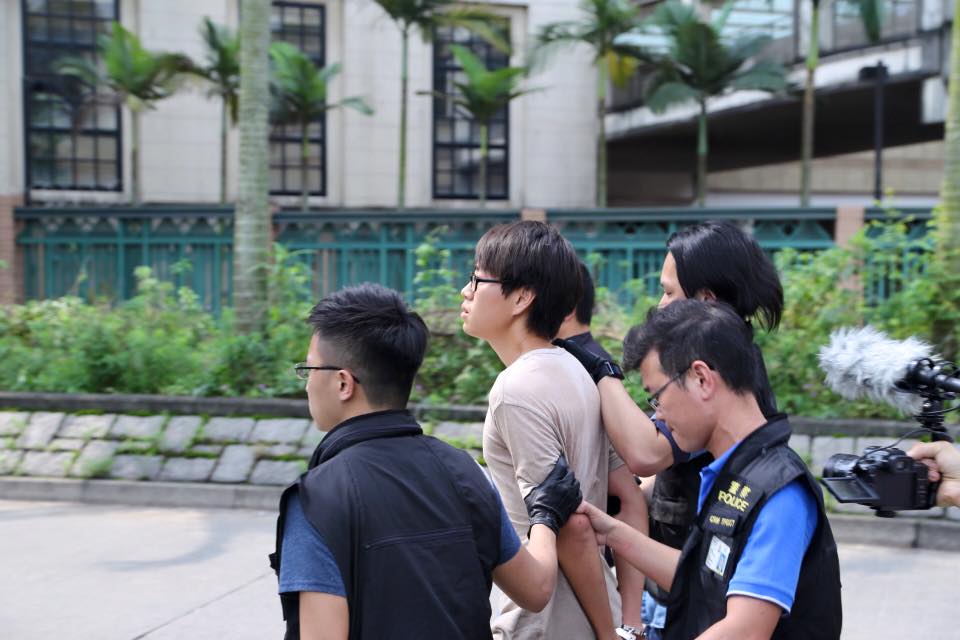
The national security law criminalises secession, subversion, terrorism and collusion with foreign forces. Secession is being interpreted to mean not just demands for outright independence or separation from China. The crime is also defined to mean anything other than Beijing’s conception of unified one-party rule over all its sovereign territory including the self-governing island of Taiwan.
Advocates of self-determination for Hong Kong are labeled “secessionists” even though they do not advocate actual secession. Nor have they yet been prosecuted, tried and found guilty of this crime. The pro-Beijing media labels them regardless. Jimmy Lai is routinely labelled a traitor although neither he nor his Apple Daily have ever advocated independence.
The relevant old Hong Kong law targets sedition, which means acts intended to incite hatred or contempt for the government. Such acts can include both speech and written communications. If this standard were applied in the United States, for example, all election campaign rhetoric would be grounds for prosecuting everyone on charges of sedition.
The national security law is not retroactive. But pre-June 30 actions and behaviour are being used retroactively “for reference,” to assess the likelihood of post-June 30 lapses. The law imposes mainland standards of political justice and is being enforced by a new security unit within Hong Kong’s police force, working under the watchful eye of Hong Kong’s new mainland-staffed Office for Safeguarding National Security.

New standards attempting to define safe and politically correct public discourse are being imposed or recommended for use everywhere: in schools, universities, newsrooms and churches — even for Sunday sermons. The impositions are self-inflicted. No one knows for sure what exactly might be off-limits, so superiors and lawyers are being consulted to help define the new limits.
The political purge now underway includes Benny Tai Yiu-ting, initiator of the 2014 Occupy Central campaign for universal suffrage elections. Tai was also a leading promoter of this year’s campaign to win a pro-democratic majority in the now-postponed September 6 Legislative Council election. His appointment as a University of Hong Kong Law School professor has just been terminated.
With no end in sight, other political players see opportunity in a democracy movement under siege and are contemplating how best to fill the void. First into the breach with ideas and proposals are the “moderates” — liberals, or pragmatists, or however they prefer to style themselves. They include “third way” advocates who have been biding their time, watching from the sidelines. They like to say they are neither one nor the other but stand between the two main camps, pro-democracy and pro-Beijing.
Pre-1997 preconceptions
Such individuals were supposed to occupy pride of place when Hong Kong’s new post-colonial political system was being designed ahead of the 1997 transfer from British to Chinese rule. Back then, in the 1980s — when the British finally realized it might not be such a bad thing to allow universal suffrage elections — the idea was anathema to many. Big business types were horrified at the thought of giving everyone the right to vote and thus have a say in the management of affairs over which they had little knowledge.
Beijing didn’t much like the idea either, but negotiations for the 1997 return to Chinese rule were just beginning. The convoluted electoral designs and limitless delays written into Hong Kong’s new Basic Law constitution, meant for post-1997 use, reflected those contentious 1980s arguments.
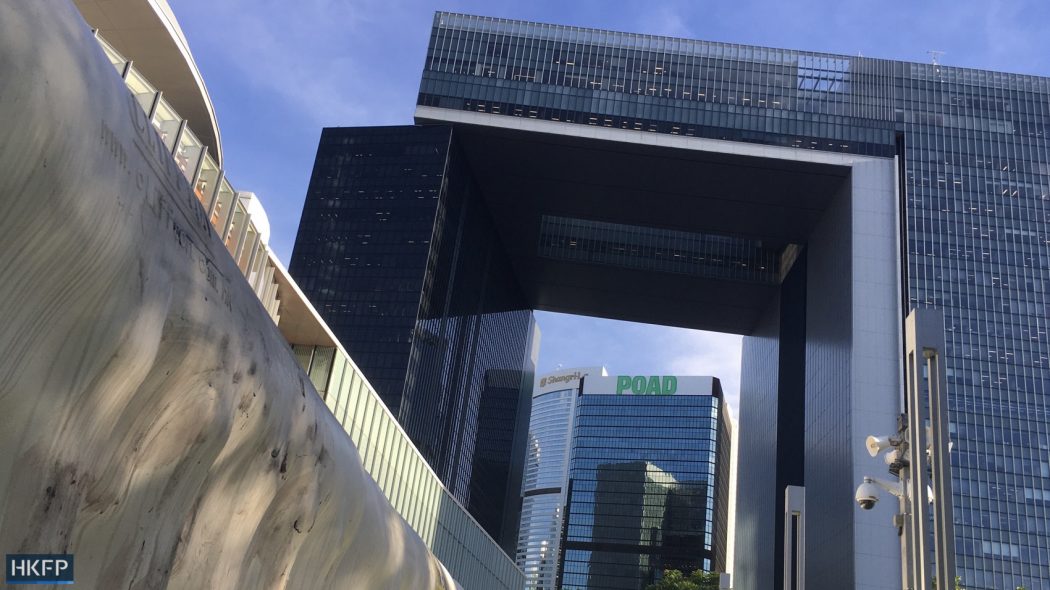
The result is today’s Legislative Council that features an ungainly mix of directly elected seats and others indirectly elected by occupation-based sectors known as Functional Constituencies. Articles 45 and 68 of the Basic Law nevertheless promised eventual full universal suffrage elections for both the Chief Executive and the Legislative Council, but without mentioning any details or time frame.
Among other things, the main concern back at the beginning was to encourage “responsible” members of the community to participate in the strange undignified “un-Chinese” custom of electioneering and soliciting support on street corners from ordinary voters.
As it happened, pro-Beijing partisans took to the new routines like ducks to water — reflecting some basic similarities between Western-style campaigning for votes and the Chinese Communist Party’s mass mobilisation campaign style, The pro-Beijing Federation of Trade Unions also automatically added tens of thousands of affiliated union members to the voter rolls.
A surprising number of moderates did come forward to take part. But they were never strong enough to become a force in their own right or stand firm and hold the middle ground. Instead, they and pro-Beijing loyalists formed a united front and worked together.
In this way, they were able to win majorities on the neighborhood-level District Councils and guarantee a “safe” majority in the Legislative Council.
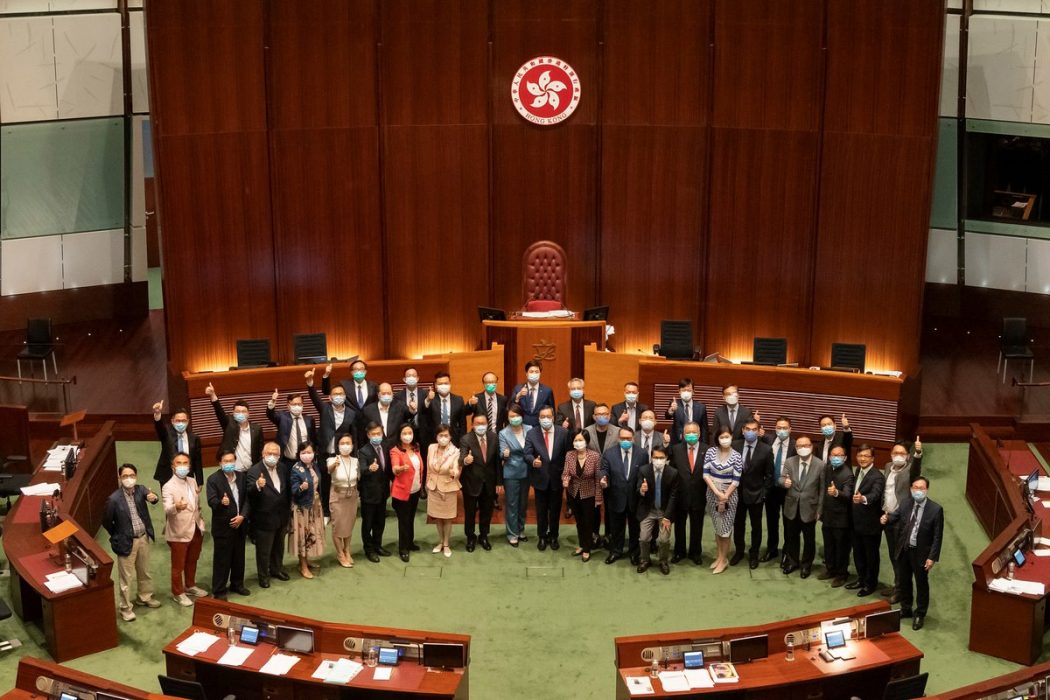
It was an alliance of convenience that makes little sense to outside observers. This is because it was made possible by the underlying pro-Beijing trade union foundation, in alliance with the business interests that were guaranteed secure representation via the Functional Constituencies.
This arrangement served the interests of all — Beijing loyalists, Beijing-led union labour and big business, plus middling moderates. It also allowed them to be anointed as the “pro-establishment” majority.
Representatives of the actual voting majority — responsible for filling the Legislative Council’s directly elected Geographic Constituency seats — were relegated to permanent “opposition” status.
This awkward arrangement was finally threatened by the rising tide of more determined pro-democracy voters. Mobilised by years of fruitless campaigning for “genuine” universal suffrage elections, and then by last year’s anti-extradition law protests, a younger generation of democrats unexpectedly swept away the old alliance. They won majorities on all but one of Hong Kong’s 18 District Councils in the election last November.
The threat to the established post-1997 order was heightened by this year’s campaign to win a genuine overall 35+ majority in the 70-seat Legislative Council on September 6. At that point, the election was postponed for a year, ostensibly due to the summer upsurge of Covid-19.
A ‘Third Way’ revival: Anthony Cheung
Middle-of-the-road proposals have previously gone nowhere except into the Beijing-dominated pro-establishment coalition. But when all else fails, people turn to the only remaining means at hand.
Anthony Cheung is among the first to offer such a proposal. He suggests institutionalising the opposition, to address the anomaly of legislators who represent the majority of actual voters but are relegated to permanent outsider status.

He has written before about Beijing’s mistake in treating these voters and their representatives as political outcasts. The current proposal is his way of trying to address the problem. But his solution is to acknowledge their outsider status by making it a permanent feature of Hong Kong’s political system.
He suggests creating the positions of majority and minority leader in the Legislative Council, with additional functions, pay and staff support.
He also urges all the powers that be to acknowledge the importance of Beijing’s pre-1997 universal suffrage promises and Hongkongers’ continuing post-1997 aspirations. This contentious issue should not be allowed to drift indefinitely.
But democrats will find his solution on this point as unpalatable as the idea of being relegated to permanent opposition status. Cheung says there is no other choice. Hong Kong must accept Beijing’s definition of universal suffrage.
This definition was introduced in Beijing’s decision issued on August 31, 2014. It ignited Hong Kong’s season of escalating dissent that has continued ever since. It transformed Benny Tai’s original plan for a three-day Occupy Central sit-down, into an event that obstructed major thoroughfares throughout the city centre for 79 days from September-December 2014.
The August 31 decision also prompted serious thinking about localism and self-determination that Beijing regards as secessionist or worse.

Nevertheless, Cheung accepts it as Beijing’s last word on the subject and says it’s either the 8.31 Decision or nothing, forever — a fact that Beijing officials did not acknowledge until 2015 and have rarely discussed since.
The decision would also institutionalize the awkward pro-establishment coalition of Beijing loyalists and their allies because it makes them all the arbiter of candidates for Chief Executive, with Beijing giving the final thumbs up.
Only then would the universal suffrage election be allowed to take place and Hong Kong voters allowed to approve Beijing’s choice of candidates. And only after Hong Kong’s Chief Executives are elected in this way will universal suffrage elections for the Legislative Council be allowed to proceed!
Until then, Hong Kong’s pro-democracy voters and their representatives in the council must be satisfied with the elevated status of an “institutionalized opposition.”
As an academic and a politician, Cheung’s career reflects this same mix of contradictory inclinations. He was one of many academics who joined the nascent democracy movement in the 1980s,
He then went on to join Martin Lee’s Democratic Party in the early 1990s. But as tensions grew with “Young Turks” rebelling against the futility of post-1997 “debating-club” democracy, they left the party and so did he, in 2004.

A few years later, he shocked former colleagues by joining the administration of hardline Beijing loyalist Leung Chun-ying. Cheung served as Minister for Transport and Housing during Leung’s 2012-1017 term.
Now a research professor at Hong Kong’s Education University, Cheung’s aim is to salvage what remains of the universal suffrage ideal from the wreckage of last year’s protests and the new national security order Beijing has imposed in response.
He may be correct in identifying Beijing’s absolute bottom line. But his views on other points could do with some updating. He uses Beijing’s term “separatists” to signify the “delusional” elements within the democracy movement.
Cheung seems not to know that all sides worked together, uncharacteristically, to form a united coalition in support of last year’s protests. Older generation pan-democrats and the younger post-Occupy generation joined in accepting that coalition platform and contesting last November’s district council elections on that basis.
Cheung sees democrats’ landslide victory last November as a clear signal of Hongkongers’ dedication to the goal of universal suffrage elections. But it was the older generation following the younger, and not the other way around as he suggests.

In any case, last November’s election victory led him to consider next year’s electoral calendar as the time for solutions. Cheung assumes the postponed Legislative Council election will be held a year from now.
The complicated procedures ahead of the next 2022-2027 Chief Executive term are also due to begin in 2021. So, the next opportunity to work through the Hong Kong deadlock with his compromise solution is fast approaching.
A new political party: James Tien Pei-chun
Rather than third way measures to make political life more tolerable for the existing system’s permanent “losers,” James Tien is thinking in terms of a few strong moderate voices that can serve a kind of blocking function in the Legislative Council.
He thinks that such representatives can stand between the two polarised pro-establishment and pro-democracy camps and find enough common ground to move the system beyond its current state of perpetual deadlock
In other words, Tien would like to see more representatives like himself and he has set up a new political group to work toward that end. He calls it the Hope League and they were preparing to contest the September 6 election.
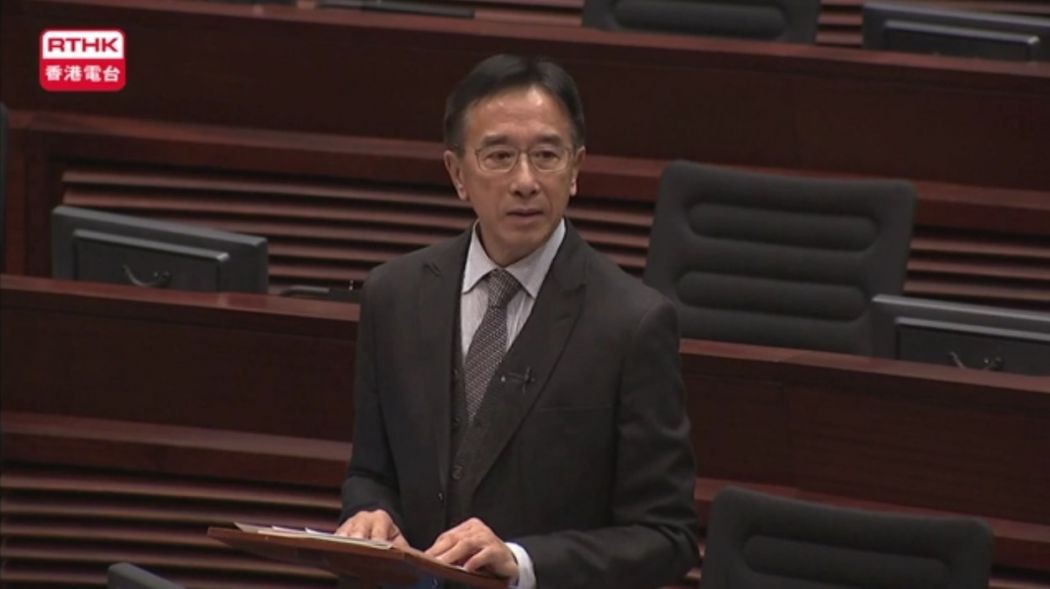
Unfortunately, there aren’t many individuals in Hong Kong with Tien’s background and temperament who might be able to occupy and hold the middle ground.
He is a businessman-politician whose resume identifies him as a member of Hong Kong’s establishment in all respects. He is also the son of a textile entrepreneur, which makes him a member of Hong Kong’s tycoon class that cynics used to say had always run Hong Kong and always would.
Tien’s path into politics lay through the pro-business Liberal Party, founded by Allen Lee and others in the early 1990s. But Tien is a sometime contrarian who likes to go against the tide and his views have often put him at odds with government leaders both here and in Beijing.
As the story of Hong Kong’s democracy movement is told, it was half-a-million angry citizens marching on July 1, 2003 who saved the city from a first attempt to introduce national security legislation. But there was an intervening variable in the person of James Tien.
Hong Kong’s first post-1997 Chief Executive, Tung Chee-hwa, came close to success in carrying out the Basic Law’s Article 23 mandate for national security legislation. He had the votes in the Legislative Council and was said to be unmoved by the July 1 turnout. The bill looked set for imminent passage before the summer recess. Activists had prepared to hold a wake outside the old Legislative Council building downtown, to begin as soon as the votes were counted and results announced.
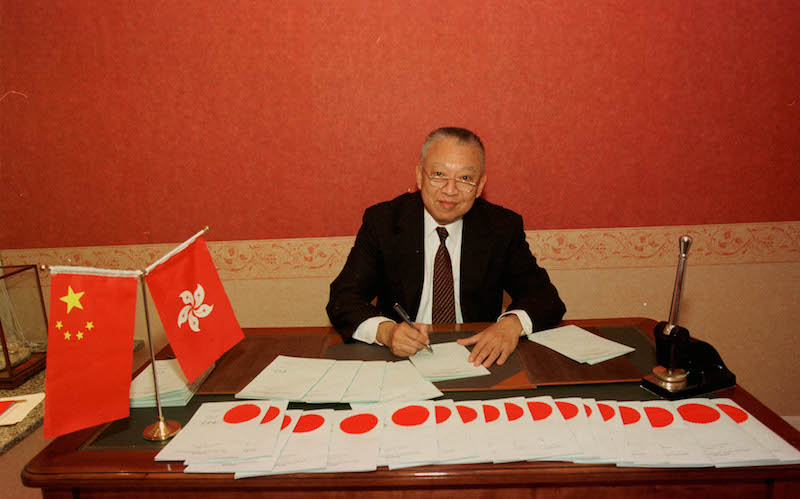
But as well as being a member of the Legislative Council, James Tien was also a member of Tung’s Executive Council or cabinet. Tien took the measure of the agitated July 1 crowd and flew to Beijing for consultations soon after.
Upon his return, he resigned from the Executive Council and the Liberal Party’s Legislative Councillors withdrew their support for the bill. Without them it could not pass and has remained on the shelf ever since — until Beijing finally lost patience and promulgated its own version on June 30.
In another noteworthy episode, Tien fell out of favor with Beijing and earned the rare distinction of being removed mid-term as a member of Hong Kong’s delegation to the honorary Chinese People’s Political Consultative Conference.
The CPPCC meets annually in Beijing when the National People’s Congress holds its annual sessions. Status in the local community and political loyalty are prerequisites for CPPCC membership. But in 2014, Tien was not loyal. The issue then was his outspoken criticism of Chief Executive Leung Chun-ying for Leung’s dismissive handling of the Occupy movement.

During the past year, Tien has been trying to play the sort of gadfly opposition role he wants to try and institutionalise. In June 2019 — when Chief Executive Carrie Lam was refusing to withdraw her extradition bill and business representatives also refused to stand against it despite their reservations — Tien called on the Liberal Party’s current Executive Council representative to resign. The gesture had worked in 2003 and it might defuse tensions again.
He now says he supports the idea of national security legislation because, unlike 2003, some activists are actually calling for independence. But the law should not have been imposed by Beijing and it should be used sparingly.
He is also openly critical of Carrie Lam, calling her Beijing’s caretaker here. She is not the kind of political leader Hong Kong needs to defend the autonomy it was promised. Nor can she defend Hong Kong’s interests now that it has become an issue in worsening US-China relations.
The ideas of Anthony Cheung and James Tien are thin reeds to grasp in post-June 30 Hong Kong. With Beijing shrugging off international disapproval, and mainland public security personnel settling in here for an indefinite stay, the prospects of finding local voices strong enough to make a difference seem bleak. Tien’s new group is aptly named. Hope must sustain him while his search continues for voices strong enough to take the initiative and stand their ground.
Support HKFP | Policies & Ethics | Error/typo? | Contact Us | Newsletter | Transparency & Annual Report | Apps
Help safeguard press freedom & keep HKFP free for all readers by supporting our team
| HKFP is an impartial platform & does not necessarily share the views of opinion writers or advertisers. HKFP presents a diversity of views & regularly invites figures across the political spectrum to write for us. Press freedom is guaranteed under the Basic Law, security law, Bill of Rights and Chinese constitution. Opinion pieces aim to point out errors or defects in the government, law or policies, or aim to suggest ideas or alterations via legal means without an intention of hatred, discontent or hostility against the authorities or other communities. |

More HKFP OPINION:
HKFP has an impartial stance, transparent funding, and balanced coverage guided by an Ethics Code and Corrections Policy.
Support press freedom & help us surpass 1,000 monthly Patrons: 100% independent, governed by an ethics code & not-for-profit.










